Potty training is one of the first and most important lessons you’ll teach your dog. Whether you have a new puppy or an adult dog that needs refresher training, finding the best way to potty train a dog will save you countless headaches and messes. In this comprehensive guide, we’ll walk through every step of the process, from setting up your space to troubleshooting common challenges.
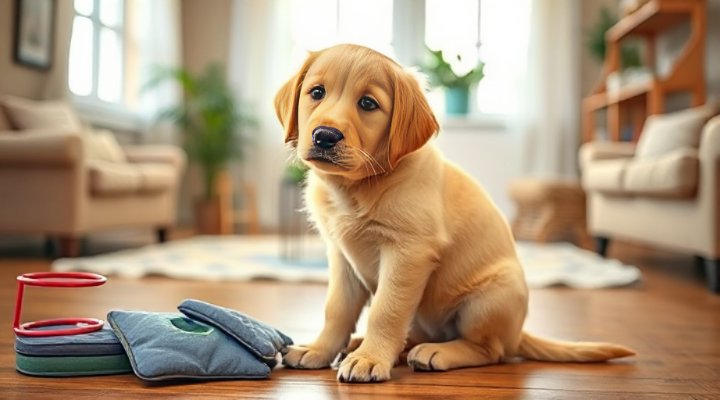
Understanding Your Dog’s Potty Needs
Before diving into training techniques, it’s crucial to understand your dog’s natural elimination patterns. Puppies typically need to go:
- First thing in the morning
- After meals
- After naps
- After play sessions
- Before bedtime
Adult dogs can hold their bladder longer, but still require regular opportunities. According to the American Veterinary Medical Association, most dogs need to eliminate at least 3-5 times daily.
Setting Up for Potty Training Success
The best way to potty train a dog starts with preparation. You’ll need:
- A consistent feeding schedule
- High-value treats for rewards
- Designated potty area (indoor pads or outdoor spot)
- Enzyme cleaner for accidents
- Patience and consistency
For apartment dwellers, our guide on potty training in apartments offers specialized tips.
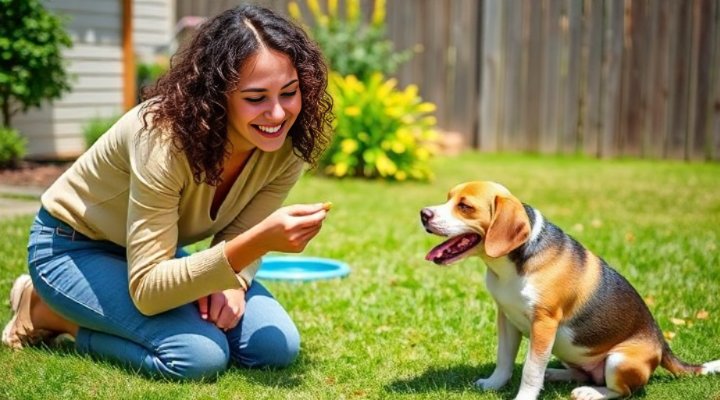
The Step-by-Step Potty Training Process
1. Establish a Routine
Dogs thrive on consistency. Take your dog to their potty spot:
- First thing in the morning
- 15-30 minutes after meals
- After waking from naps
- After play sessions
- Before bedtime
Puppies may need hourly trips initially. Use a command like “go potty” to create association.
2. Reward Successful Potty Breaks
When your dog eliminates in the right spot:
- Praise immediately (“Good potty!”)
- Give a high-value treat
- Offer brief playtime as extra reward
This positive reinforcement is the cornerstone of the best way to potty train a dog.
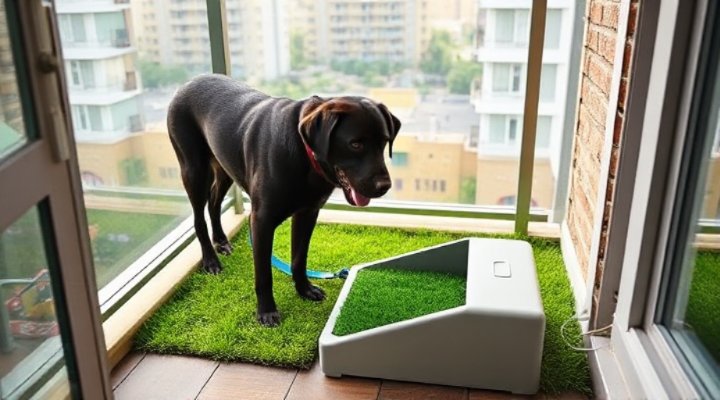
3. Supervise Constantly
When not confined, keep your dog in sight. Watch for signs they need to go:
- Sniffing or circling
- Whining or pacing
- Squatting position
- Suddenly leaving the room
At the first sign, calmly take them to their potty area.
4. Handle Accidents Properly
Mistakes will happen. When they do:
- Interrupt gently if caught in the act
- Take immediately to correct spot
- Clean thoroughly with enzyme cleaner
- Never punish after the fact
For more on managing accidents, see our behavior solutions guide.
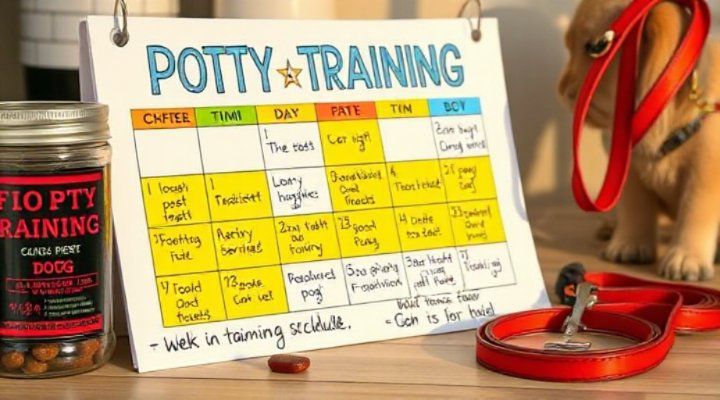
Troubleshooting Common Potty Training Challenges
My Dog Won’t Signal When They Need to Go
Teach your dog to communicate by:
- Hanging bells by the door
- Ringing them before each potty trip
- Rewarding when they touch the bells
Our doorbell training guide details this method.
My Dog Has Frequent Accidents
This may indicate:
- Medical issues (consult your vet)
- Inconsistent schedule
- Insufficient supervision
- Area not cleaned properly
The American Kennel Club recommends ruling out health problems first.
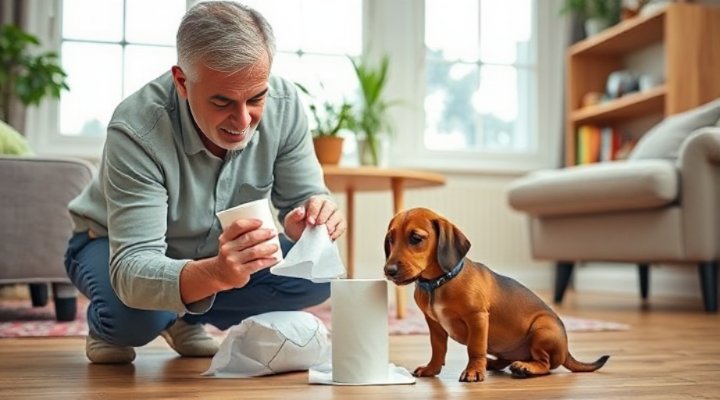
Transitioning from Puppy Pads to Outdoor Potty
For dogs initially trained indoors:
- Gradually move pads closer to door
- Eventually place pad outside
- Remove pad once comfortable outside
- Use same command throughout
This gradual approach minimizes confusion during the transition.
Final Thoughts on the Best Way to Potty Train a Dog
Remember these key points:
- Consistency is crucial – stick to the schedule
- Positive reinforcement works better than punishment
- Every dog learns at their own pace
- Adult dogs can be successfully trained too
With patience and these proven techniques, you’ll master the best way to potty train a dog. For more training tips, explore our puppy training guides.
Related Keywords: dog potty training schedule, housebreaking a dog, puppy pad training, dog bathroom habits, potty training adult dogs

